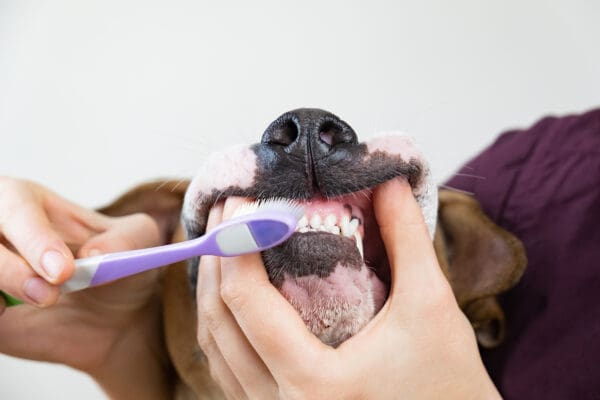
11401 NE 195th St. Bothell, WA 98011
(425) 486-9000 PHONE (425) 486-9002 fax
All sick or injured birds will benefit from warmth (90-95 degrees) and being placed in a dark and quiet space until you can get medical help. Birds that have not been eating can be given corn syrup (not sugar-free) diluted in water by eyedropper or syringe, in very small and frequent amounts. Below are first aid tips for specific injuries or illnesses.
- TRAUMA often involves bleeding, fractures or concussion. The top priority is to stop bleeding. The most effective method to stop bleeding is direct pressure. Once the bleeding has stopped or slowed dramatically, styptic powder or flour may be used to help form a clot (do not use styptic powder or flour on any skin wound involving a broken bone). If a clot cannot be quickly formed, direct pressure should be continued and medical help sought immediately.
- Once the bleeding has stopped, the wound should be covered by sterile gauze bandage until a veterinarian can assess it (as soon as possible).
- Fractures (broken bones) should be assessed as soon as possible by a veterinarian so that they can be stabilized/splinted. This is important to alleviate pain, and also to minimize trauma to the soft tissues at the area of the fracture itself. If you can see any bones sticking out of the skin or visible within the wound, cover the area with a sterile gauze bandage and bring the bird to your veterinarian immediately. Do not flush the wound with anything, as certain bones are connected to birds’ respiratory tracts, and this can cause drowning. Depending on the type of fracture, surgery may be necessary to achieve good healing.
- ANIMAL BITES always require emergency medical treatment with antibiotics and pain medications, even if you are not sure if the skin was broken. Due to their feathers, it can be very difficult to identify skin wounds on birds. All animals carry bacteria in their mouths, and many of these can cause lethal infections. Crush injuries causing internal damage and/or broken bones are also possible.
- BURNS must always be inspected by a veterinarian as soon as possible, even if the skin appears minimally damaged. Even superficial burns can lead to shock, causing a dramatic decrease in blood pressure with risks of organ damage and death. Burn treatment may require extensive wound care, fluid therapy, pain control, and antibiotics. In many cases, the full extent of burn damage is not known for several days.
- If your bird has received a superficial burn over a small area of skin, please rinse the burned area in cool water for 15 minutes, dry the area, cover it with a sterile gauze bandage, and then transport your bird to your veterinarian immediately. Never apply ice or ice water to the burn wounds.
- The exception to this rule is if a large area of skin was burned, or if your bird is showing signs of shock (lethargy, weakness, abnormal behavior). In this case, you should skip the step of rinsing the burns and rush your bird to your veterinarian immediately, as delay in treatment could result in life-threatening complications.
- GASTROINTESTINAL DISEASE includes anorexia (not eating), diarrhea, passing whole seed, and/or the crop remaining full, with or without regurgitation. Note that birds in new or stressful situations may not eat for a short period of time. Introducing new foods may cause a change in feces, and food with high water content may cause wet droppings from increased urine production.
- Conditions requiring urgent veterinary care may include:
- long-term (greater than 8 hours in small birds, 24 hours in large birds) anorexia
- diarrhea (lack of formation to fecal stools)
- passing whole seed in stool
- decreased fecal output
- yellow-to-green urates (white portion of droppings)
Please contact our emergency line if any of these symptoms are seen in your bird.
- TISSUE PROLAPSE from the vent may be the uterus, rectum, intestines, oviduct/egg, or other tissue. This is always considered an emergency situation, as delayed care can result in tissue death and significant medical complications. Prior to transporting your bird to the veterinarian, you may lightly rinse the tissue with warm, sterile saline solution or contact lens solution, and moisten it with sterile lubricant, such as KY jelly. Do not use any petroleum-based lubricants.
- CENTRAL NERVOUS SYSTEM DISEASE includes seizures, paralysis and/or incoordination. This can be caused by calcium deficiencies, hypoglycemia, toxin exposure, infections, tumors, and other health problems. Neurological disease almost always requires immediate care, and prompt attention may be necessary to save your bird’s life. Contact our emergency line immediately if your bird develops any of these symptoms. Our veterinarians will advise you on any care that can be provided while you are transporting your pet to our office on emergency.
- HYPERTHERMIA or overheating from exposure to extreme heat or exertion can quickly be life threatening. Signs of hyperthermia include rapid breathing, panting and holding wings away from the body, collapse, and unresponsiveness. This can quickly lead to shock and death if aggressive medical therapy is not implemented. Be aware that panting can also be caused by respiratory disease, and treating for hyperthermia can make situations worse.
- Birds that are hyperthermic can be cooled by gentle application of cool water topically prior to transporting them to our office for emergency fluid therapy and medical care.
- RESPIRATORY DISEASE symptoms include difficulty breathing, sneezing, panting, rapid breathing, holding the wings away from the body with each breath, nasal discharge, a tail flick, or a voice change. This is always an emergency, and prompt emergency care may mean the difference between life and death.
- If your bird has severe difficulty breathing, place him/her in a dark box or carrier, minimize handling and stress, and call the veterinarian immediately.
- SWELLINGS may be abdominal fluid, an egg, a hernia, air from a ruptured air sac, or a tumor. If the bird exhibits difficulty breathing, or otherwise seems depressed, call the veterinarian immediately. Any swelling indicates that medical care should be sought out.
- BEAK INJURIES may or may not be emergencies depending on the extent and the location of injury. Fractures or injuries near where the beak is connected to the face should be seen as soon as possible. Bleeding should be controlled with direct pressure.
Typical calls to our clinic involve birds that are “maybe a little lethargic, not eating as well as normal, and/or just a little puffed up and sleeping more”. Practically every disease a bird can have, mild or severe, can present with these exact symptoms. As birds are masters at hiding signs of illness, we recommend an exam for any bird showing these symptoms, along with testing and laboratory work to help us distinguish between the many possible diagnoses.
To reach the veterinarian for after hours emergencies:
- Call the emergency line at 425-892-0036.
- Alternatively, you can call our regular clinic number, 425-486-9000, and the recording will give instructions on how to reach the doctor on call.
- If you reach our voicemail on the emergency phone line, leave a detailed message and a phone number and our doctors will return your call as soon as possible. Please try again if you do not receive a response from the on-call doctor within 15-20 minutes. Cellular phone calls do not always go through, and the doctor may be dealing with multiple emergencies simultaneously. Continue calling until you connect with a doctor.
March 30, 2015
Content of this Care Sheet Courtesy of:
The Center for Bird and Exotic Animal Medicine
11401 NE 195th St. Bothell, WA 98011
(425) 486-9000 PHONE (425) 486-9002 fax



